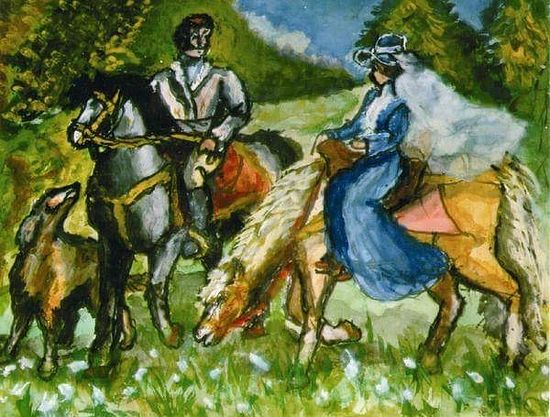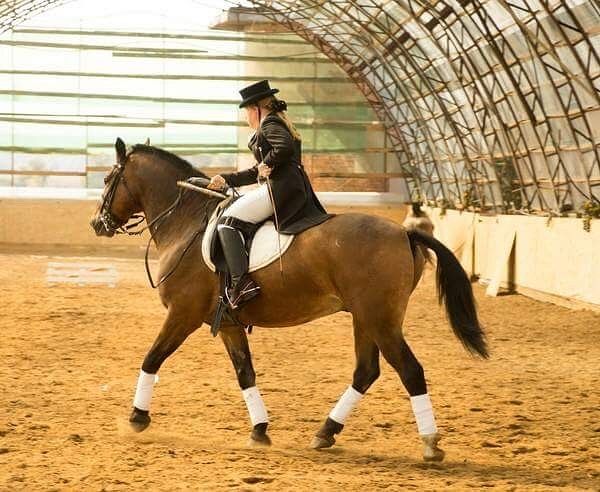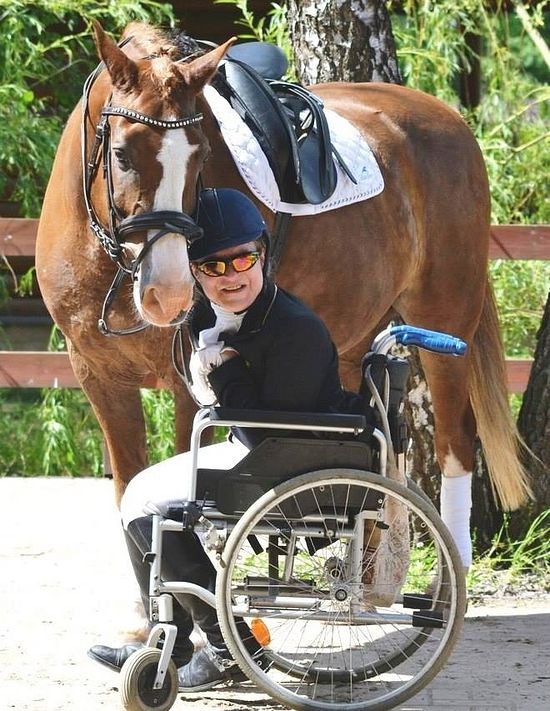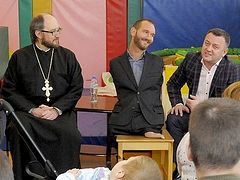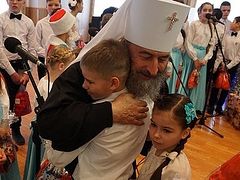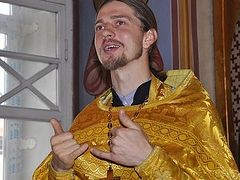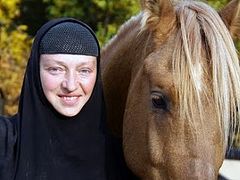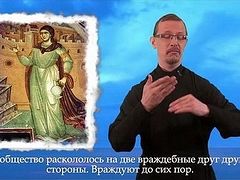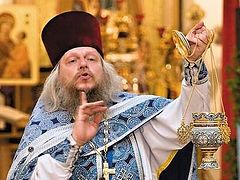Foreword
I don’t know about you, but I personally begin to think of Christian patience and humility more seriously only during Lent.
And how often I grumble and complain and hear the following words from others: “This Lent was so hard to endure! So many troubles and problems weighed me down!”
It is usually so difficult for us to put up with our misfortunes, let alone move forward, develop spiritually and train our will.
I believe that most of Russian readers know the novel by Boris Polevoy (1908-1981) The Story of a Real Man based on the heroic deed of Alexei Maresiev1. If you haven’t read this book, you may have watched the feature movie with the same name where the main character, a pilot, lost his legs but nevertheless remained a successful pilot, became a dancer, and beloved husband to his wife.
In my view, we can find allusions to Polevoy’s novel in the famous western, The Revenant, featuring Leonardo DiCaprio.
But can we meet a real hero or heroine today?
Xenia Ryabova, five times Paralympic dressage champion, was born with cerebral palsy. Xenia has told me the story of her life which, in my opinion, can be regarded as a modern equivalent of “the story of a real man”.
A Paralympic female equestrian
I met Xenia online, on social networks. She was raising funds for a charity run.
A beautiful, stately equestrian, sitting on horseback in a dressage costume and resembling the horsewoman from the famous painting by Valentin Serov, was looking at me from her Facebook avatar.
Frankly, at that moment I did not have a slightest idea that Xenia Ryabova was disabled. Rather, I though she was a riding master or an organizer of equestrian charity marathons.
Soon after that an acquaintance of mine recommended that I shoot a documentary about the Paralympic champion Xenia Ryabova.
And much to my amazement I found out that this beautiful horsewoman from the avatar has a serious physical impairment, namely severe cerebral palsy. It means that she can move only in a wheelchair and is unable to speak clearly, so it would be extremely difficult for me to conduct a video interview with her.
We began to exchange emails on a regular basis and I discovered the remarkable life story of a truly strong-willed person, a woman with a capital “W”, who is five times champion in equestrian sports in Russia, a journalist, a beloved wife and a mother of two in spite of her severe handicap and inarticulate speech.
Xenia wrote to me about herself, her achievements and lifelong struggle for the recognition of her human dignity in society.
* * *
On my disease
My disorder is called severe cerebral palsy. We were told that it was a result of a medical error at the maternity hospital where I was born. Until the age of eight I couldn’t speak and could hardly move. However, my parents did not lose hope and tried their best to treat me and “put me on my feet”. They really wanted me to become “normal”, like all other children.
Nobody warned them back then that cerebral palsy is incurable and the only thing one can do is learn to live with it.
It was only in 1987 in Hungary that doctors informed us about it. They also said that it is my intellect that matters and not my feet. And I do have intellect as I have been straining every nerve to live on and be “normal”.
In Hungary, with the help of the doctors, I learned to walk a little and was becoming more courageous… until one terrible incident that was fatal for my health.
I fell onto a sharp edge of a chair, which resulted in my right hip dislocating out of its socket; and there appeared a cyst that gradually tore the blood vessels of the leg. And it caused a chronic, sharp, unbearable pain in my leg.
A physician advised my mother to get me seated in a wheelchair and not to worry about me any more. The professor we had an appointment with did not even take the trouble to examine me!
His words sounded so offensive to me and it really hurt me to hear them. It seemed that he did not see me as a human being...
And I burst out sobbing…
The assistant was shocked, immediately helped me out and then apologized to me for a long time: “We are so sorry! The professor simply did not know that you understand everything.”
On my father
I was born when my parents were going through tough times in their lives. After their return from France (where they had worked at a scientific center) in 1972 they were repressed by the Soviet Government and the State Security Committee (“KGB”).
My father naively believed that science and politics should be separate. Unfortunately, that was impossible at that time, as it impossible today; all the more so when it comes to such areas as nuclear physics and nuclear power engineering. A slander campaign against my father was launched. In the end he was expelled from the Communist Party with a “wolf’s ticket” [a passport or other certificate with a note of its holder’s political unreliability. The term originated in the Russian Empire and is still used in the countries of the former Socialist bloc.—Trans.].
Dad’s friends helped him get a job as a research assistant at the institute in Troitsk. It was very humiliating for him because before that he had been at the head of a team of scientists from former Socialist countries in Dubna [a town near Moscow nicknamed “the home of Russia’s science” and famous for its Joint Institute for Nuclear Research]. But we had no other alternative: my father and I moved to Troitsk [a town near Moscow], while my mom remained to work in Dubna. This was for financial reasons.
Soon my school began. It turned out that I was a clever and able student and made progress. That was a great relief to my father.
In the evenings my father would share his knowledge with me: He would tell me about world history, the history of Russia from Rurik till the Revolution of 1917, read me libretti of famous operas and ballets, and retell his favorite classic books to me. To my mind, that was the happiest period for both of us.
While father took my upbringing upon himself, my grandmother looked after me.
Mom would seldom come to see us—once or twice a month for a weekend. That was a true joy for me each time. But when I woke up on Monday morning and couldn’t find mother anywhere… I would begin to cry loudly, crawling all over the flat trying to find her.
When I grew up, I realized that this was the way it had to be and reconciled myself to my lot…
It would be unfair to say that mother did not play any role in my life. Each time my mother came to us she would bring me a book or a toy, cook some delicious food, and would take me to her flat in Dubna for four to six weeks in summer.
She also went with me to different sanatoriums to treat me.
But, nevertheless, it is my father that is and has always been the closest and most important person in my life.
On my grandmother
While I was growing, my father and grandmother were always with me.
When my father called my granny to go and take care of me, she left everything in Nizhny Novgorod—her work, relatives, her apartment (which she sold)—and came here to wholeheartedly devote herself to my upbringing.
She spent so much money on my medical treatment.
At the age of eighty-nine or ninety she would wash the floor in the flat, cook dinner and take me to and from the toilet. And she had a character of a military commander!...
Now my granny is dead, but she will remain in my heart forever.
I often see her in my dreams… I am absolutely sure that she is in heaven, that she loves me… I do feel it! Sometimes I clearly feel her presence, her prayer and protection. My dear granny, forgive us for everything!
On drawing
In Hungary my parents were advised to find me a hobby, an occupation that would give me a much-needed income in the future. Thus I took up drawing.
And there were horses, horses, and horses in my pictures. I would draw them with pencils and crayons.
I have vivid memories of how my granny and I colored in these horses during long winter evenings.
On my return from the Federal Republic of Germany I finished an art school (a class of easel painting) and started painting in watercolors.
On equestrian sports
I have been obsessed with horse sports since early childhood… While most of my peers used to play with dolls, I used to play with toy horses, cowboys, and knights, and dreamed of sitting in the saddle.
Whenever I saw grazing horses from the window while we were riding in a car, I would begin to yell as I couldn’t speak at that time.
Then my dad would stop the car and arrange for me to take a ride. It seems that at that early age I already had a presentiment that I would become a rider.
It was during my stay in Germany that I learned about hippotherapy and Paralympic Games.
On moving to Russia I got to the Rehabilitation Center for Children with Cerebral Palsy near the Tsaritsyno metro station in the south of Moscow, which had a hippotherapy program led by doctor in exercise therapy and sports medicine Galina Dremova and riding coach Svetlana Samsonova.
I applied for the therapeutic riding program, but they wouldn’t admit me because I was a wheelchair user.
However, I didn’t give up. I got round to Galina Dremova, begging her to give me a chance. Two weeks later they at last invited me to a trial riding lesson, and I was “in the seventh heaven of joy”.
I was the “worst case” of all the disabled group members, while everybody else could walk. But as soon as I was lifted onto Hagor, everybody saw “a different Ksiusha [a diminutive form of the name Xenia in Russian]”.
I felt as if I had been born on horseback. My back, legs and the gleam in my eyes spoke for themselves. And riding didn’t scare me the tiniest bit…
I didn’t complain about my pain – it was being on horseback that really mattered to me. It is noteworthy that after me, a boy who was able to walk was lifted onto the horse. But he simply lay down on its neck and could not straighten his back up. In the end they had to take him down from the horse without a ride, whereas I managed to ride for about half an hour.
Thus, I was admitted to their group where I stayed for three years, and Galina Dremova wrote her doctoral thesis based on my experience.
Half a year later I was allowed to lead a horse independently. And it should be said that I controlled even the most “difficult”, moody horses well, while they refused to move with other group members.
That was followed by two years of riding and the Central Moscow Hippodrome where the first sport team of disabled horse riders was organized. Thus my career in para-equestrian sports began.
I have been one of the most severely impaired horse riders since then. (Most other competitors are with much milder disability and can walk). There are only five of us in the world.
There is only one woman rider whose condition is worse than mine. She is Japanese. We can only marvel at how she manages to sit in the saddle, to lead and control her horse, to take part in competitions. But she was permitted to do it and nobody has ever asked her, “Why are you doing this?”
My very first competitions brought me success. I am many times a prize-winner of competitions in Moscow, the Moscow region and nationally; three times all-around champion of Russia; took part in 2003 world championships where I finished seventh and fourth; silver medalist of 2014 world competitions. I am an active athlete and have taken part in Paralympic dressage competitions since 1999. I hold the title of candidate for master of sports (KMS).
In December 2006, for my sizeable contribution to the promotion of equestrian sports for the disabled, persistence and devotion to my work I was awarded Gold Medal of Honor and Benefit by the “Maecenases of the Century” International Charitable Foundation.
I am a member of the National Federation of Therapeutic Riding and Equestrian Sports for People with Disabilities of Russia. In November 2011, I received an honorary award from the above-mentioned Federation for the promotion of hippotherapy and equestrian sports for the handicapped.
Now horses mean so much to me: good health, muscle training, and an opportunity to prove to everybody around me that I am able to achieve something in this world. In addition, it is an incomparable feeling of freedom, lightness and flight.
I cannot walk and have serious issues with moving. When I am riding on a horse, I begin to “blossom”, I breathe and live. For many of you sport is a hobby or entertainment, but for me sport is, in some sense, the purpose of life.
Once a woman referee from Australia who was a horse owner came to our second Russian championship. After my round she came up to me and said:
“You sense the horse’s language and emotions perfectly!!! Never give up horse riding. You will surely succeed.”
And she was right. The experience that I gained and my communication with different horses and coaches helped me understand that one should treat a horse as a person not as sports equipment, respect its desires and know much about its fears. You shouldn’t whip your horse only because it is frightened; instead, you need to find out the source of its fear. I personally never whip my horse when it is scared; instead, I switch its attention to the rein or my leg and bring it back into work, coming through “the most frightening moment” alright. For me a horse is neither an animal nor a “tool” for winning medals; rather, it is a sensitive, faithful friend and helper, and a fearless partner at tournaments. I have mastered all elements of each specific movement that only very experienced dressage riders can do. And I want to go on with my work. Equestrian sport is my life. It always has been, it always will be. And I want other people with disabilities to feel what I feel when I am riding.
I have written a book on hippotherapy based on my personal experience and I am looking for sponsors to get it published.
On love
Did I dream of married life and finding true love?
I am not quite sure, but I did hope that this day would come. After all, in my heart of hearts I didn’t really think of myself as handicapped. I was a human being, a famous journalist of the city, an athlete, the only captain of a para-equestrian dressage team in the Moscow region… And, in addition to this, I was simply a woman…
I met my future husband through an online role-playing game. It was a “medieval” RPG with fantasy elements.
It was a game that involved knights, princesses, Amazons, dragons, elves and dwarves. But, most importantly, there were no graphics there, and you needed to describe each character, each costume and each action verbally. So you were expected to have outstanding knowledge of the history, ballistics, martial arts, attire, architecture, etiquette of that epoch.
At once we felt attracted to each other, got along very well and understood each other without having to spell everything out.
And when he sent me his photograph half a year later, my heart missed a beat and I realized that I met my soulmate. The man that was looking at me from the photo was a medieval knight, Athos, Comte de la Fere [a character in the novels by Alexandre Dumas The Three Musketeers, Twenty Years After and The Vicomte de Bragelonne], with long hair, a narrow swarthy face, an aquiline nose, and sad, beautiful, expressive eyes. I fell for him in a moment! And I still love him. Will you say that it is not possible? It is, and how!
Our parents tried to dissuade us from marrying but we were persistent… While his parents soon put up with this, my parents wouldn’t even hear of my marriage…
But when Kostya [a diminutive form of the name Constantine in Russian] and his mother came to see us, my parents realized that we were very serious about our marriage. Kostya immediately took it upon himself to take care of me. He helped me to dress myself, fed me, took me to the toilet and bathed me. In a word, he excelled in the things where my dad was powerless. And our parents finally gave us their blessing for marriage.
Soon we learned some happy news: we were expecting a baby! And that also was a challenge for me because hardly anybody believed that I would be a good mother.
However, despite everything, I went through the entire pregnancy well and gave birth to our healthy daughter Caroline; and in 2010, our son was born.
An application for aid:
At the present time Xenia cannot continue her activities related to equestrian sports on account of her family’s financial problems. If you can help Xenia, please contact her:
https://www.facebook.com/profile.php?id=100002477199816&fref=ts
http://disability-in-russia.blogspot.ru
The card number of Sberbank of Russia: 4276 8381 3681 9606





